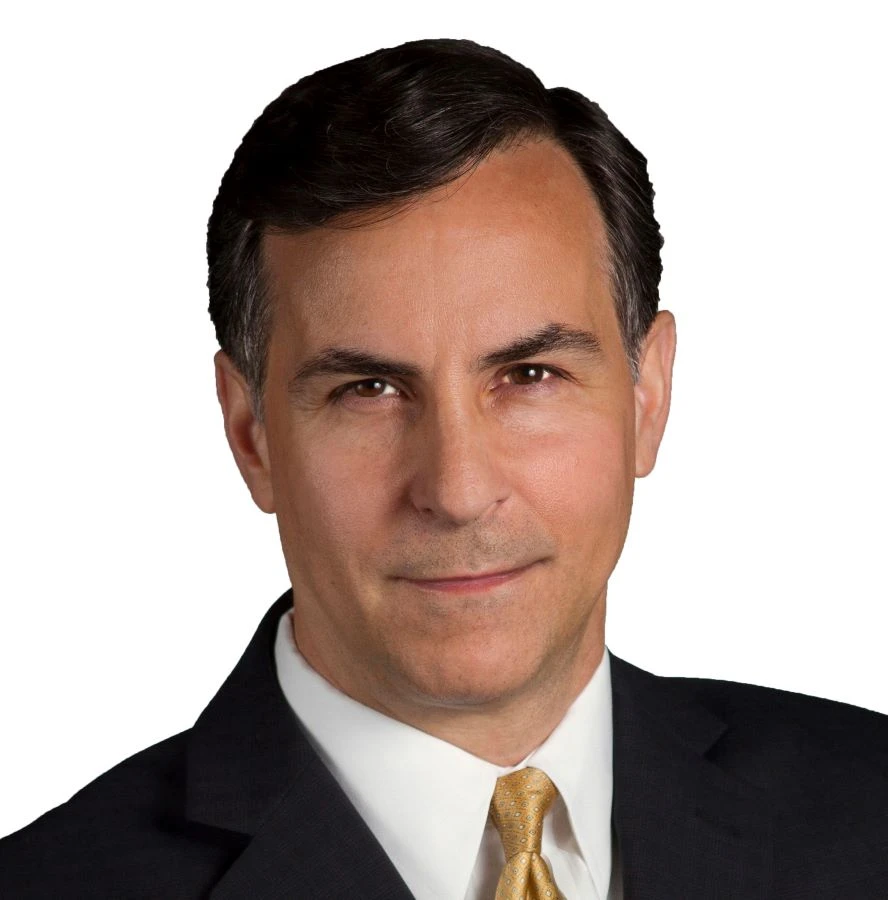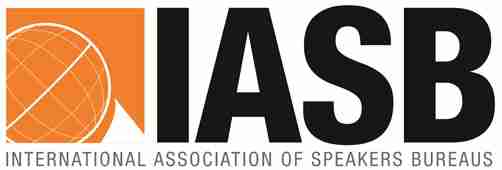John Manzella: GeoPolitical Economist
Geopolitical economist and global business strategist who decodes trade, policy, and market risk with actionable scenarios to protect growth and seize cross-border opportunities.
Quick Facts:
- Highlights:
- Delivered compelling keynotes and expert insights at hundreds of conferences, corporate events, and universities across the United States and worldwide, both live and virtually.
- Authored multiple books on international trade, labor economics, and global business strategy, recognized for their clarity, forward-thinking analysis, and relevance to today’s market challenges.
- Sought-after authority in analyzing economic shifts, trade wars, and labor market evolution, frequently consulted by Fortune 500 companies, policymakers, and media.
- Formats: Keynote (45–60 min); Executive Briefing
- Audiences: Leadership teams (25–150); Conference keynotes (200–2,500)
- Outcomes:
- Actionable scenario planning for supply chain and trade disruption.
- Clear risk indicators leaders can monitor immediately.
- Strategies to protect revenue and exploit cross-border opportunities.
- Travels from:
- **Fee range: $10,000 - $15,000
Talent Services
Keynote Topics:
Economic Trends, Global Trade, Labor and What’s Ahead
Pandemic-related realities and the fallout from the Russia-Ukraine war continue to impact the U.S. and global economy, while complexities with China add new risks. Combined with the energy revolution, shifting demographics, and challenges with the USMCA and Europe, these issues are shaping our future.
What does this mean to you? This invaluable program analyzes economic trends, examines trading relationships, reveals Chinese dangers, and explores critical issues involving labor, skills, automation, and immigration. Additionally, it offers survival strategies and provides insight on what’s ahead.
This popular program covers four important areas that impact each other:
(1) Macroeconomics: GDP forecast, long term economic risks, factors impacting growth and inflation, energy, housing, global GDP, and country forecasts, etc.
(2) Labor: unemployment forecasts, shifting demographics, worsening labor shortages, falling participation levels and reasons, strategies to attract and retain labor, automation, immigration, etc.
(3) Trade and globalization: the direction of globalization, impact on industry and workers, USMCA, Europe and Brexit, emphasis on China’s direction, decoupling prospects, Chinese risks and challenges, etc.
(4) Capitalism is being threatened: The need to maintain reasonable tax rates is necessary in order to incentivize entrepreneurs to take risk, while generating enough revenue to help stabilize or prevent the continued erosion of the U.S. middle class (similar situation around the globe). As the middle class erodes, voters tend to support populists on the far right and left. In both cases, capitalism is at risk.
American Realities, Critical Risks and Survival Strategies
The key to American free-market capitalism lies in our ability to innovate new products and services and deliver them worldwide. This requires pro-globalization policies, an educated labor force, and an environment that incentivizes entrepreneurs to take risks that create new companies, technologies, and jobs.
However, critical risks stand in the way.
New technologies and globalization have tremendously improved our standard of living, but many have been left behind that support far left and right populists who may ultimately threaten capitalism.
Unless addressed, shifting demographics will translate into fewer consumers and worsening labor shortages.
The pandemic, Russian war, and Chinese tensions have forced companies to continually assess risks that impact supply chains and globalization.
This stimulating and insightful program explores these issues, analyzes economic trends, delves into labor and Chinese challenges, and provides strategies to prepare for what’s ahead.
International Trade, Economic Trends and the Trump Factor
Economic trends, global tensions and rising protectionism are forcing companies to reassess trading relationships, investments, friend shoring and supply chain options. Plus, demographic shifts, labor issues and immigration concerns are increasing levels of volatility.
This thought-provoking program peers into the chain reactions of what’s unfolding, examines the positions of President Trump, and analyzes risks and realities with a focus on international trade, China, Europe, Mexico, Canada, and changing world economic order. Additionally, it explores strategies to reduce dangers and navigate the waters ahead.
Global Risks, New Realities and Ripple Effects
The United States and Europe face many critical risks and realities that are shaping our future.
These include:
(1) rising trade protectionism, Chinese challenges, supply chain concerns, the direction of globalization, and the need to achieve access to the world’s 8 billion consumers;
(2) demographic shifts, worsening labor shortages, immigration concerns, and the need to automate; and
(3) rising inequality, growing populism, divisive polarization, threats to capitalism, and the need for balance.
What should we do?
This engaging program explores these issues, cuts through the clutter, and offers strategies to navigate the dangers ahead. Plus, it connects the dots between declining fertility rates and living standards, examines the Brexit blunder, and reveals Chinese dangers, unmasks Chinese vulnerabilities, and delves into its unsustainable trajectory.
Talent Short Bio
John Manzella is a geopolitical economist and global business strategist who helps executives translate complex global trends into concrete strategy. With decades of experience advising corporations, policy makers, and trade organizations, John decodes trade policy, labor dynamics, and macroeconomic developments into understandable and actionable guidance.
His presentations cover supply chain risk, rising trade tensions, labor market changes, and the intersection of energy and demographic trends. John’s style is evidence-based and scenario-driven: audiences leave with prioritized risks, practical contingency steps, and signaling indicators tailored to their industry.
He has written extensively on labor economics and trade policy and is regularly cited by major business publications. John’s briefings are ideal for C-suites and boards preparing for regulatory shifts, global sourcing changes, or workforce disruptions. Whether a large conference or an executive retreat, John delivers analysis that helps leaders protect growth, allocate capital thoughtfully, and spot high-reward opportunities across borders without getting lost in jargon.
Read Full Bio
John Manzella is a world-recognized speaker (live and virtual), author of several books, and an international columnist on global business, trade policy, labor, and the latest economic trends.
His valuable insight, analysis and strategic direction have been vital to many of the world’s largest corporations, trade associations and universities preparing for the business, economic and political challenges ahead.
John’s views have appeared in The Wall Street Journal, New York Times, Chicago Tribune, Bloomberg, NPR, Newsday, Houston Chronicle, Denver Post, and other publications in China, Singapore, Mexico, Canada, Korea, Japan, and the Middle East.
His books include Global America: Understanding Global and Economic Trends and How To Ensure Competitiveness, Grasping Globalization: It’s Impact and Your Corporate Response, and Mexico and NAFTA: The Real Impact, among others.
John Manzella is founder of the ManzellaReport.com, a premier source for global business and economic analysis, and Manzella Trade Communications, a public affairs, publishing and consulting firm.
Additionally, he is Chair of the Upstate New York District Export Council, a position appointed by the U.S. Secretary of Commerce, former Executive Director of goTRADE New York, an advocacy coalition sponsored by the Washington, D.C.-based Business Roundtable, and former President and CEO of World Trade Center BN.
View All Speakers and follow us on Twitter
Talent Videos
John Manzella | Why Protectionism Threatens U.S. Competitiveness and Jobs
Global business and trade expert John Manzella explains how protectionist policies, tariffs, and trade wars harm U.S. growth, workers, and global competitiveness.
Video Summary & Key Moments
In this episode of The Manzella Report, John Manzella explores the critical role international trade plays in driving U.S. economic growth, job creation, and competitiveness—and warns how protectionist policies threaten to undermine these benefits.
He begins by noting that trade has lifted millions out of poverty, expanded standards of living, and especially benefited the U.S. economy, which thrives on economies of scale. Today, international trade supports 41 million American jobs, with workers in export-intensive industries earning significantly more than average. Yet, despite this, the U.S. is shifting toward protectionism.
Manzella outlines how free trade agreements open opportunities for American businesses. Although the U.S. has just 14 agreements covering 20 countries, those markets account for nearly half of U.S. exports despite representing only 6% of global consumers. Meanwhile, hundreds of other regional trade agreements are being formed worldwide without U.S. involvement, leaving American companies less competitive.
He challenges common misconceptions about imports, explaining that they lower costs, increase consumer choice, help fight inflation, and supply vital inputs for U.S. manufacturing. Far from weakening the economy, imports sustain millions of jobs across sectors like retail, wholesale, and transportation. He also stresses that declining U.S. manufacturing jobs result largely from automation and productivity gains, not imports.
Turning to trade deficits, Manzella argues that tariffs don’t eliminate them, since deficits are shaped by factors such as investment flows and savings rates. He cites examples where countries with low tariffs run surpluses, while protectionist economies still face deficits. Instead, tariffs raise costs, fuel inflation, and ultimately hurt more jobs than they protect.
Manzella highlights the risks of proposed U.S. tariffs on Canada and Mexico, America’s largest trading partners. Because North American industries—particularly automotive—are deeply integrated, tariffs would raise costs multiple times as parts cross borders repeatedly, making the entire region less competitive.
Drawing parallels to the 1930 Smoot-Hawley Tariff Act, which worsened the Great Depression, he cautions against repeating history. The smarter path, he concludes, lies in forward-thinking trade policy that expands market access, fosters competitiveness, and strengthens alliances.
Key Moments
00:00 – Trade’s role in lifting millions out of poverty and fueling U.S. growth.
02:10 – Importance of U.S. free trade agreements and current gaps.
05:00 – Why imports strengthen, not weaken, the U.S. economy.
09:30 – Declining U.S. manufacturing jobs and the role of automation.
13:20 – Trade deficits explained: why tariffs don’t solve them.
17:00 – Case study: Trump-era steel and aluminum tariffs.
20:15 – Risks of new tariffs on Canada and Mexico.
25:00 – Lessons from the 1930 Smoot-Hawley Tariff Act.
28:40 – Smarter approaches to trade for long-term prosperity.
John Manzella | Global America: Economic Forecast, China, and the Future of Trade
Global business expert John Manzella discusses shifting demographics, U.S. labor shortages, China’s economic challenges, and why globalization is evolving, not ending.
Video Summary & Key Moments
In this keynote presentation, John Manzella, author of Global America, outlines key economic trends shaping the future of U.S. competitiveness, trade, and globalization. Speaking to a live audience, he emphasizes the risks and opportunities presented by shifting demographics, automation, labor shortages, and international trade dynamics.
Manzella begins by stressing the importance of entrepreneurship and risk-taking, which fuel job creation and innovation. Yet he highlights a major challenge: 10,000 baby boomers retire daily, taking critical skills with them, while the U.S. faces worsening labor shortages. Immigration, he argues, is vital to filling these gaps. U.S. universities attract the best global talent, but restrictive visa policies send them home, where they compete against American companies.
He turns to the generational shift in the workplace, noting that millennials and younger workers bring a different culture and expectations. Employers must adapt, offering benefits and flexibility that align with this workforce’s values.
Addressing China, Manzella critiques the sustainability of its economic system. He argues that China’s reliance on state planning, subsidies, and imported energy presents vulnerabilities. Rising wages and structural imbalances mean the era of low-cost Chinese imports—which kept U.S. inflation artificially low—is ending. While some production may shift to India, Vietnam, or Mexico, no country can replicate China’s scale in the near term.
Manzella also examines globalization, arguing it is not dying but evolving. With billions of middle-class consumers emerging outside North America and Europe, U.S. companies must compete in foreign markets to thrive. He cites GM’s sales in China as an example of global demand shaping corporate strategy.
He explains the benefits of free trade agreements, noting that nearly half of U.S. exports go to just 20 countries covered by U.S. agreements. Lowering trade barriers, he stresses, allows U.S. workers and companies to compete globally. At the same time, he warns of populist movements on both the left and right that threaten capitalism if economic systems swing too far toward inequality or state control.
Ultimately, Manzella calls for balanced capitalism, forward-looking trade policies, and an immigration system that secures America’s future competitiveness in a rapidly changing world.
Key Moments
00:00 – Introduction to John Manzella and Global America.
04:00 – Demographics, baby boomer retirements, and skill shortages.
08:20 – Immigration and the need for highly skilled workers.
12:45 – Generational shifts and adapting to millennials in the workplace.
16:30 – China’s economic vulnerabilities and wage inflation.
21:10 – The end of ultra-low-cost imports and global supply shifts.
25:40 – Globalization evolving, not ending.
30:00 – Importance of trade agreements for U.S. competitiveness.
36:00 – Risks of populism and maintaining balanced capitalism.
42:00 – Closing reflections on America’s global future.
John Manzella | U.S. and Europe: Globalization, Labor Shortages, and Inequality Risks
In this short briefing, John Manzella highlights three critical risks shaping the future of the U.S. and Europe: globalization, demographics, and inequality.
Video Summary & Key Moments
In this episode of The Manzella Report, global business and economics expert John Manzella outlines three pressing risks and realities facing the United States and Europe, each of which has profound implications for competitiveness, growth, and stability.
The first challenge is the uncertain direction of globalization and rising tensions with China. Manzella stresses that both the U.S. and Europe rely on economies of scale and must secure access to the world’s 8 billion consumers—not just their domestic markets. Yet protectionism is rising, new free trade agreements are unlikely, and U.S.–China frictions are accelerating economic decoupling in high-tech sectors. He warns that as China becomes less stable, it may also become more aggressive, further disrupting global supply chains. In this environment, risk mitigation must take precedence over efficiency gains in strategic planning.
The second issue is demographic shifts and worsening labor shortages. Fertility rates are declining across the U.S., Europe, China, and other nations—falling below replacement levels. Without policies to boost legal immigration or the rapid deployment of productivity-enhancing technologies, countries face a shrinking labor force, fewer consumers, and fewer investors, all of which undermine living standards. With immigration politically contentious, Manzella notes that many nations will increasingly turn to automation as the only viable solution.
The third risk is rising inequality and the threats it poses to capitalism. Economic and cultural divides are fueling populism on both the far left and far right. Manzella explains that left-wing populism often raises taxes in ways that discourage entrepreneurship and investment, while right-wing populism can foster crony capitalism that benefits elites at the expense of sustainability. Both extremes endanger capitalism. The only way forward, he argues, is for political leaders to find middle ground through compromise.
Manzella concludes by stressing that navigating these challenges will be difficult, but adapting to them is absolutely necessary for long-term prosperity.
Key Moments
00:00 – Introduction to U.S. and European economic risks.
00:40 – Globalization, protectionism, and rising tensions with China.
02:00 – Supply chain shifts and prioritizing risk mitigation.
03:00 – Demographic shifts, fertility decline, and labor shortages.
04:20 – Immigration, automation, and the future workforce.
05:20 – Rising inequality, populism, and threats to capitalism.
06:40 – Call for balanced leadership and adaptation.
Interest to Book? Send us your enquiry
No reviews available for this post.
Talent Resources
Download Talent Files
Download Talent Files
Talent FAQ's
Do speakers charge a flat fee or by the hour?
Speaker fees can vary depending on factors such as expertise, demand, and event specifics. While some speakers may charge a flat fee for their services, others may have hourly rates. It’s best to discuss fee structures directly with the speaker or their representative to understand the pricing model.
What is the typical duration of a keynote speech and what is included?
Keynote speeches typically range from 30 to 90 minutes, with the duration determined by the speaker’s expertise, the event’s agenda, and audience preferences. Keynote speeches often include a combination of inspirational stories, practical insights, and actionable advice tailored to the event’s theme or objectives.
Does the scale of the event and audience size affect a speaker’s fee?
The scale of the event and audience size can indeed impact a speaker’s fee. Larger events with a broader reach or higher attendance may command higher fees due to increased exposure and demand. Conversely, smaller events or niche audiences may offer opportunities for more flexible pricing arrangements.
Travel expenses and other costs
Travel expenses such as transportation, accommodation, and meals are typically negotiated separately from the speaker’s fee. These costs vary depending on the speaker’s location, travel distance, and event duration. It’s important to clarify travel arrangements and expenses during the booking process to avoid misunderstandings.
Deposits and securing a booking
Many speakers require a deposit to secure a booking, with the remaining balance due closer to the event date. Deposits are often non-refundable and serve as a commitment from both parties. It’s advisable to discuss deposit requirements and payment terms with the speaker or their representative when finalizing the booking.
Additional tips and takeaways
- Virtual speaking appearances are a cost-effective alternative to high speaking fees, often 10-50% cheaper than in-person rates.
- There is typically no difference in fee for a 15-minute speech versus a 60-minute speech.
- Some motivational speakers are open to discounting their fee if hired for more than one event by the same organization.
- When browsing speakers, consider their location to keep travel costs down.
- Personal connections to your organization or event location can increase your chances of securing a renowned speaker.
- Be upfront about your needs and expectations to ensure a successful partnership.
- Speaker bureaus like Speakers Inc help guide you through the booking process to negotiate the best deal with favorable terms.
Ready to find the perfect speaker for your event? Use our advanced search feature or contact us to get started today!
You may be interested in...
- (71)

Rawi Abdelal is recognized as one of the world’s foremost authorities on how globalization and geopolitics affect businesses, economies, supply chains and social structures Herbert F. Johnson Professor of International Management at Harvard Business School, faculty co-chair of the Bloomberg-Harvard City Leadership Initiative and faculty chair of the Harvard Business School/YPO Presidents’ Program Work focuses […]
- Travels from: Cambridge, MA
- Political Speakers
- (15)

Jason Schenker is the President of Prestige Economics and Chairman of The Futurist Institute. He is a top-ranked economist, leading futurist, bestselling author, and in-demand keynote speaker who delivers high-impact presentations on economic trends, financial markets, geopolitical risks, AI, technology trends, and the future of work. Through his talks and research, Schenker helps clients anticipate […]
- Travels from: Austin, TX
- Futurists Speakers
No results available
Disclaimer
These remain the property of its owner and are not affiliated with or endorsed by Speakers Inc.
Fee Range Information
All talent fees exclude VAT, travel and accommodation where required.






